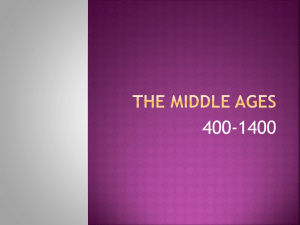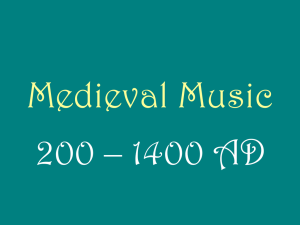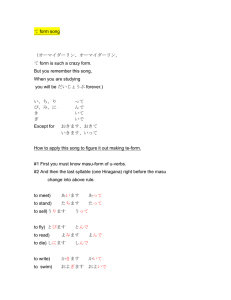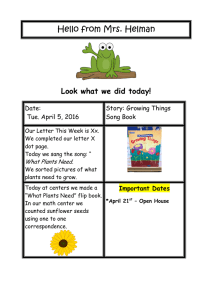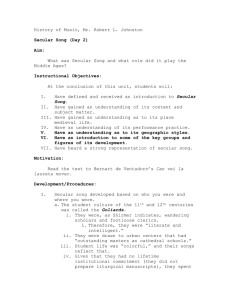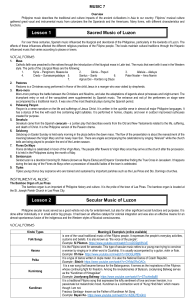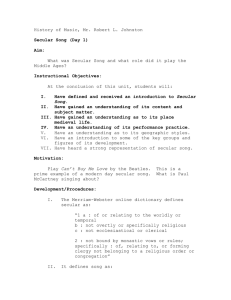Exhibit 1
advertisement
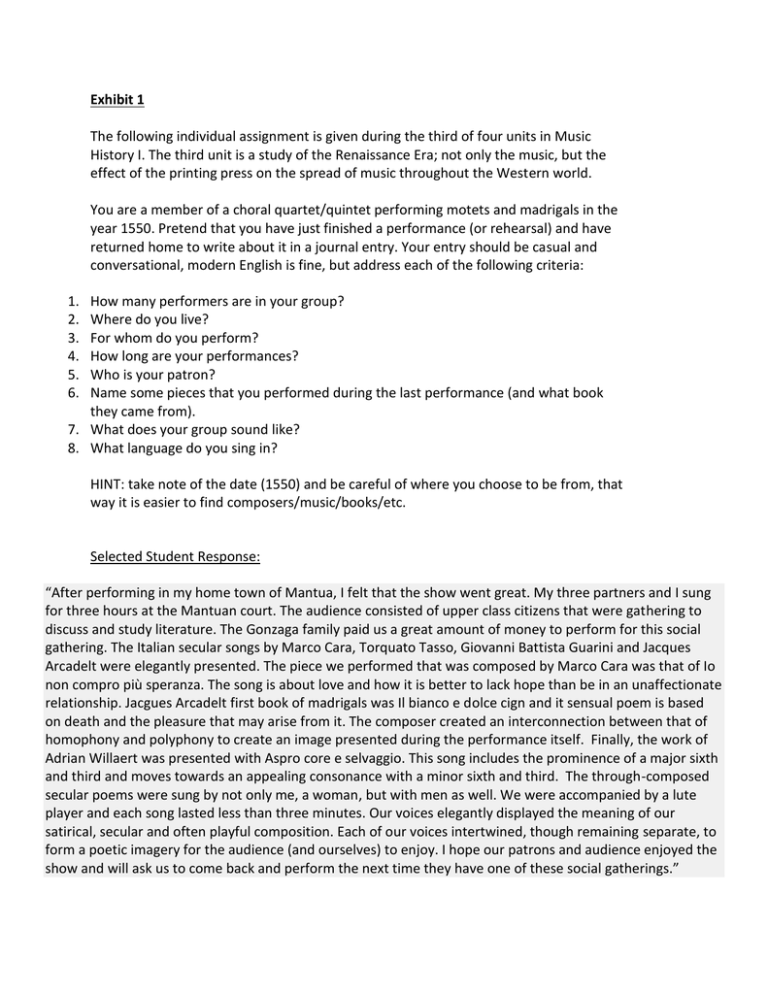
Exhibit 1 The following individual assignment is given during the third of four units in Music History I. The third unit is a study of the Renaissance Era; not only the music, but the effect of the printing press on the spread of music throughout the Western world. You are a member of a choral quartet/quintet performing motets and madrigals in the year 1550. Pretend that you have just finished a performance (or rehearsal) and have returned home to write about it in a journal entry. Your entry should be casual and conversational, modern English is fine, but address each of the following criteria: 1. 2. 3. 4. 5. 6. How many performers are in your group? Where do you live? For whom do you perform? How long are your performances? Who is your patron? Name some pieces that you performed during the last performance (and what book they came from). 7. What does your group sound like? 8. What language do you sing in? HINT: take note of the date (1550) and be careful of where you choose to be from, that way it is easier to find composers/music/books/etc. Selected Student Response: “After performing in my home town of Mantua, I felt that the show went great. My three partners and I sung for three hours at the Mantuan court. The audience consisted of upper class citizens that were gathering to discuss and study literature. The Gonzaga family paid us a great amount of money to perform for this social gathering. The Italian secular songs by Marco Cara, Torquato Tasso, Giovanni Battista Guarini and Jacques Arcadelt were elegantly presented. The piece we performed that was composed by Marco Cara was that of Io non compro più speranza. The song is about love and how it is better to lack hope than be in an unaffectionate relationship. Jacgues Arcadelt first book of madrigals was Il bianco e dolce cign and it sensual poem is based on death and the pleasure that may arise from it. The composer created an interconnection between that of homophony and polyphony to create an image presented during the performance itself. Finally, the work of Adrian Willaert was presented with Aspro core e selvaggio. This song includes the prominence of a major sixth and third and moves towards an appealing consonance with a minor sixth and third. The through-composed secular poems were sung by not only me, a woman, but with men as well. We were accompanied by a lute player and each song lasted less than three minutes. Our voices elegantly displayed the meaning of our satirical, secular and often playful composition. Each of our voices intertwined, though remaining separate, to form a poetic imagery for the audience (and ourselves) to enjoy. I hope our patrons and audience enjoyed the show and will ask us to come back and perform the next time they have one of these social gatherings.”
